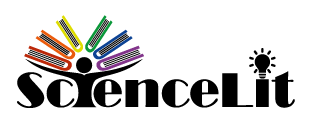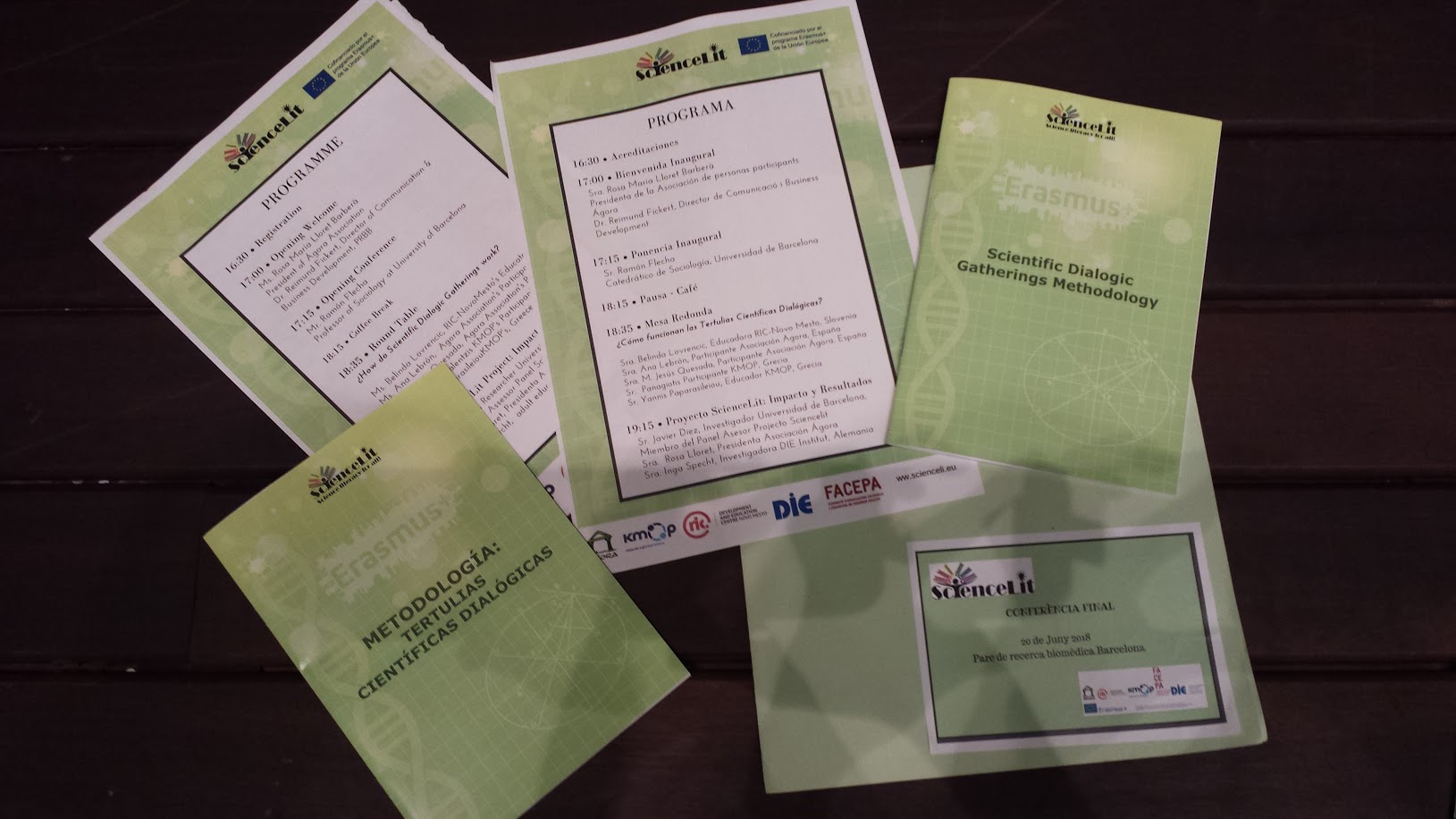ScienceLit
ScienceLit: Scientific Literacy for all!
- DIE Home /
- Research Service /
- Research Map /
- Search Facility
- / ScienceLit: Scientific Literacy for all!
September 2016 bis August 2018
Abstract
The ScienceLit project is based on the fact that there is no methodology of transferring scientific knowledge to adults, especially those belonging to disadvantaged groups (unemployed 55 + and young adults at risk).
ScienceLit main objective is giving access to the natural sciences to the people who have been traditionally excluded from academic knowledge. With the aim of improving the offer of high quality learning opportunities, the Methodology, developed following the dialogic learning approach/model (Flecha, 2000), implements a tested and effective 'Successful Educational Action', the dialogic gathering, to the field of science. This has an added value in teaching science literacy to adults.
Through this high quality learning opportunity, adults in disadvantage situation who are involved in adult education will participate actively, reading and discussing scientific documents. They will be able to ask questions, share their opinions and ideas at the same time that they are part of the coordination team committee of the project. In this project, adult participants will learn the importance of using arguments to explain one’s point of view and of the democratic discussion of arguments. The methodology used in this project will be the communicative methodology. This methodology is based on the principles of equality, inclusion and relevance of all participants.
Fragestellung
How to transfer scientific knowledge to adults in disadvantaged/at-risk situations and mainly low-educated who participate in non-formal education?

Projektziel
OBJECTIVES
- To facilitate access to scientific knowledge to adults, especially to those in an at-risk situation, providing them with the tools that they need for their scientific literacy;
- To facilitate tools that enable adults to understand, interpret and analyze scientific knowledge independently and autonomously.
- To develop a ‘ScienceLit Methodology’ to transfer scientific knowledge to adults.
- To connect European science institutions with adults at risk in order to contribute in setting science closer to society.
- To develop key competences (literacy, numeracy) by participating in successful educational actions such as ‘Scientific Gatherings’
OUTPUTS
- Methodology on Scientific Literacy for adult education
- Interactive Guide on Scientific Literacy for adult education
- Training course on Scientific Literacy for adult education
Kontakt
- Anderson, Maripaz (Projektkoordination)
Beteiligte Personen
- Anderson, Maripaz (Projektkoordination)
- Dederichs, Melanie (Mitarbeit)
- Fleige, Marion, Dr. (Leitung)
- Specht, Inga, Dr. (Wissenschaftliche Bearbeitung)
-
Vasiliauskaite, Lina
(Assistenz)
- Deutsches Institut für Erwachsenenbildung (DIE)
Beteiligte Institutionen
-
Deutsches Institut für Erwachsenenbildung (DIE) - Programme und Beteiligung
http://www.die-bonn.de/Institut/forschung/inklusion_lernen_quartier/
Sonstiges
NEWS
October 2016
- Kick-off meeting of the project in Barcelona (Spain) at AGORA (first transnational meeting)
January 2017
- Starting of the Scientific Dialog Gatherings in the partner organisations
July 2017
- Second transnational meeting of the project partners in Germany at the DIE
January 2018
- First newsletter of the project (in German): 1st newsletter_final_DIE_German.pdf
English version: 1st newsletter_English.pdf
March 2018
- Third transnational meeting in Slovenia at Ric NovoMesto
- Read about ScienceLit at EPALE
May 2018
- Second newsletter of the project (in German): 2nd newsletter_German_final.pdf
English version: 2nd newsletter_English_final.pdf
June 2018
- Final Conference at the Barcelona Biomedical Research Park (20th June 2018)

- Online Guide now available in Spanish: https://www.die-bonn.de/sciencelit/default.aspx?lang=es
August 2018
- German training course about Scientific Dialogic Gatherings, 17th August 2018 in Bonn. (invitation)
- Online Guide now available in German: https://ww.die-bonn.de/sciencelit
September 2018
- Online Guide now available in five languages (English, Greece, Slovenian, Spanish, German): www.die-bonn.de/sciencelit
October 2018
- Manual for a Training for Experts implementing SDGs (in English) now available: Training for Experts_Manual.pdf
- Manual for the Online Guide (in English) now available: Online Guide_Manual.pdf
Zuordnung zum Forschungsmemorandum für die Erwachsenen- und Weiterbildung
Das Forschungsmemorandum für die Erwachsenen- und Weiterbildung ist ein Koordinatensystem um Schwerpunkte der Bildungsforschung zu identifizieren.
Geographischer Raum, auf den sich das Projekt bezieht
Zeitraum, auf den sich das Projekt bezieht
Forschungsart
- Geförderte Forschung
Förderung
- Europäische Union
- Erasmus+
Kooperationspartner
- AGORA, Asociacion de personas participantes AGORA, Spain
- FACEPA, Federació d'associations culturals i educatives de persones adultes, Spain
- KMOP, Kentro merimnas oikogeneias kai paidiou, Greece
- RIC Novo mesto, Razvojno izobrazevalni center Novo mesto, Slovenia
